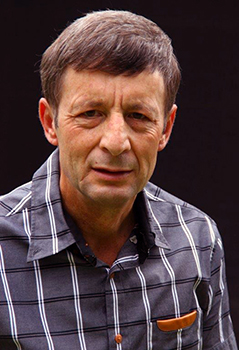Latest News Archive
Please select Category, Year, and then Month to display items
02 January 2025
|
Story Edzani Nephalela
|
Photo Lethabo Machabaphala
 From the left are, Prof John Klaasen, Dean of the Faculty of Theology and Religion; Prof Vasu Reddy, Deputy Vice-Chancellor: Research and Internationalisation at the UFS; Prof Anthea Rhoda, acting Vice-Chancellor and Principal of the UFS; Prof Allan Boesak; Prof Nico Koopman, Deputy Vice-Chancellor: Social Impact, Transformation and Personnel at Stellenbosch University; and Dr Eugene Fortein, Senior Lecturer: Historical and Constructive Theology at Prof Boesak’s book launch.
From the left are, Prof John Klaasen, Dean of the Faculty of Theology and Religion; Prof Vasu Reddy, Deputy Vice-Chancellor: Research and Internationalisation at the UFS; Prof Anthea Rhoda, acting Vice-Chancellor and Principal of the UFS; Prof Allan Boesak; Prof Nico Koopman, Deputy Vice-Chancellor: Social Impact, Transformation and Personnel at Stellenbosch University; and Dr Eugene Fortein, Senior Lecturer: Historical and Constructive Theology at Prof Boesak’s book launch.
In a world increasingly defined by the stark contrasts of power and vulnerability, the concept of democracy often reveals itself as a double-edged sword. For the children of struggle – those who have grown up amid the chaos of inequality and conflict – democracy can feel like a distant promise, an ideal often outmanned by the realities they face. The deception of hope lingers in the air as aspirations clash with systemic barriers, leaving many to navigate a landscape where a harsh daily existence obscures the principles of freedom and justice. This exploration seeks to uncover the intricate dynamics between hope and disillusionment, shedding light on the lived experiences of those who yearn for a brighter future yet grapple with the weight of unfulfilled promises.
This was the essence of the public lecture titled Outmanned by Democracy: Children of Struggle, Deception, and Hope, presented by Prof Allan Boesak, a theologian and political activist, on the Bloemfontein Campus.
Prof Boesak confronted the continuous socio-economic challenges faced by South Africa and other nations, including racism, narrow ethnic nationalism, and the revival of tribalism. He emphasised the role of churches in tackling these issues. “The responsibility of churches is to articulate what politicians are often afraid to say,” he stated. “Put your ideologies into practice and leverage your power as ministers of the Word to shape the future and reclaim the dignity of your people. This is where unity transcends colour and stature. Consider the various roles that churches could play in reconciling communities, as seen in the Gaza crisis.”
During his visit to the UFS Faculty of Theology and Religion, Prof Boesak also launched a four-volume set titled The Fire, The River and the Scorched Earth: Fifty Years of Black Theology Through the Lens of Allan Boesak. The first three volumes include his lectures and responses from various theologians, while the fourth contains his sermons. This body of work aims to document, critique, and celebrate the contributions of black theology, highlighting its role in the struggle for justice and liberation and underscoring Prof Boesak’s unwavering commitment to freedom, liberation, and democracy.
In a time when hope and disillusionment coexist, Prof Boesak’s insights remind us of the transformative power of faith and activism in the continuing fight for a more equitable world
Prof Luyt says young researchers should not allow circumstances to determine their future
2016-02-01

Prof Riaan Luyt, an NRF B-rated researcher
Photo: Supplied |
Young researchers, who spend their life at a disadvantaged and rural campus like the University of the Free State’s Qwaqwa Campus, should not be deterred from achieving their dreams.
This is the view of Prof Riaan Luyt, former Assistant Dean in the Faculty of Natural and Agricultural Sciences, who achieved his B-rating by the National Research Foundation (NRF) late in 2015. This was by far the highest-ever rating on the Qwaqwa Campus.
“When I moved to the Qwaqwa Campus many years ago, having had the opportunity to do a post-doctoral fellowship in Polymer Science at the Leeds University in the United Kingdom, I was determined to get the Department of Chemistry off the ground, and to embark on serious research,” said Prof Luyt, who is now the Affiliated Professor in the Department of Chemistry and Research Associate Professor at the Centre for Advanced Materials, based at Qatar University.
“It was through sheer determination that I managed to obtain enough funds to equip a decent research laboratory. There were many obstacles over the years, but I managed to attract more and more postgraduate students and published more,” he said.
At first, Prof Luyt was not successful with his NRF-rating applications.
“My first couple of attempts to get rated produced no success. I was then awarded a C3-rating, which was later followed by C2 and then C1,” he added. “Getting a B-rating is the highlight of my research career. It shows that it can be done. Young researchers should not allow their past or present circumstances, or their work environment to stand on their way,” said Prof Luyt, who has supervised 38 master’s and doctoral students as well as 11 postdoctoral fellows. He has also published 185 papers in international and accredited journals.
Although abroad, Prof Luyt will continue to supervise eight postgraduate students at the Qwaqwa Campus.